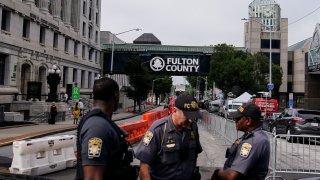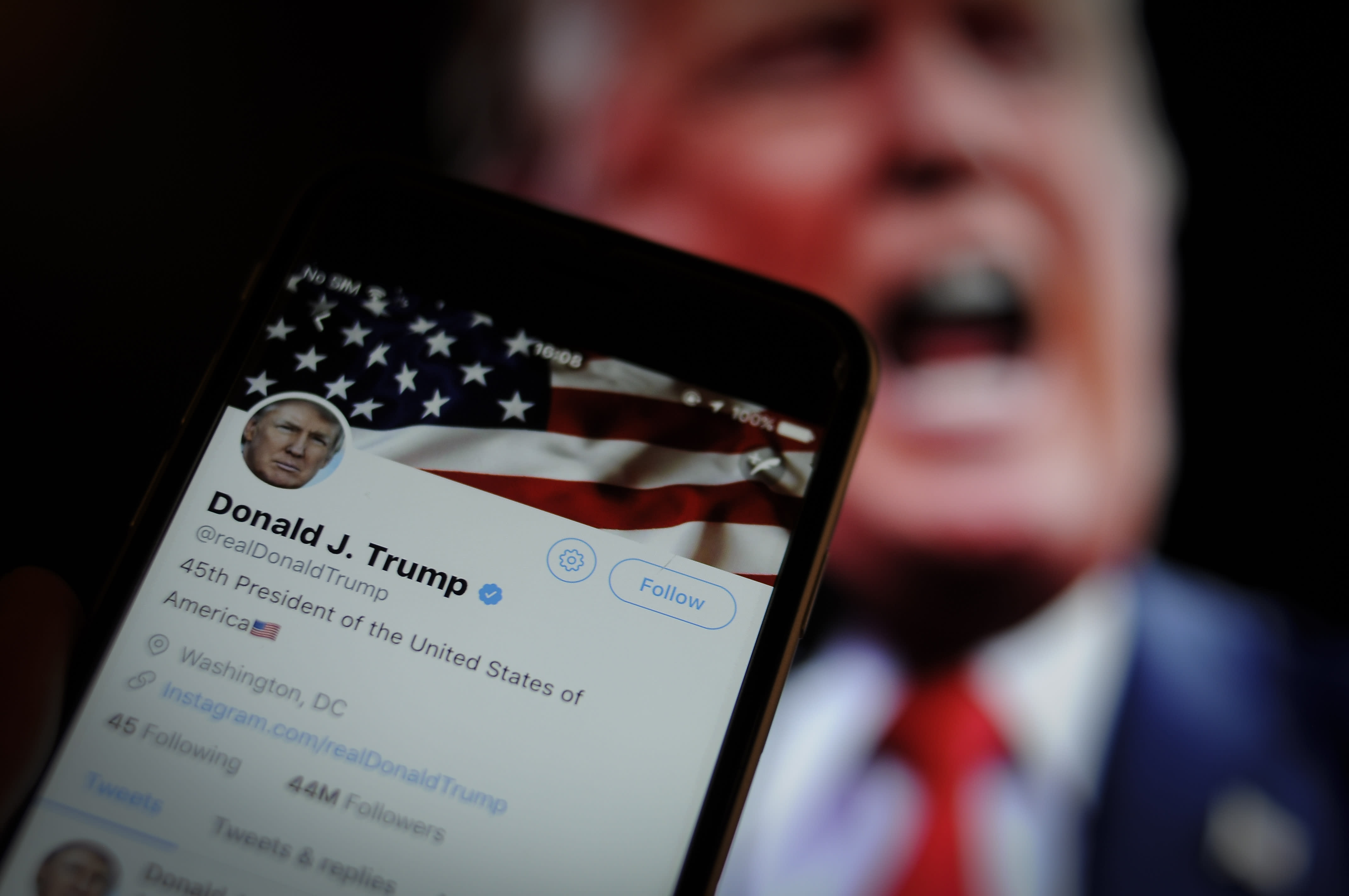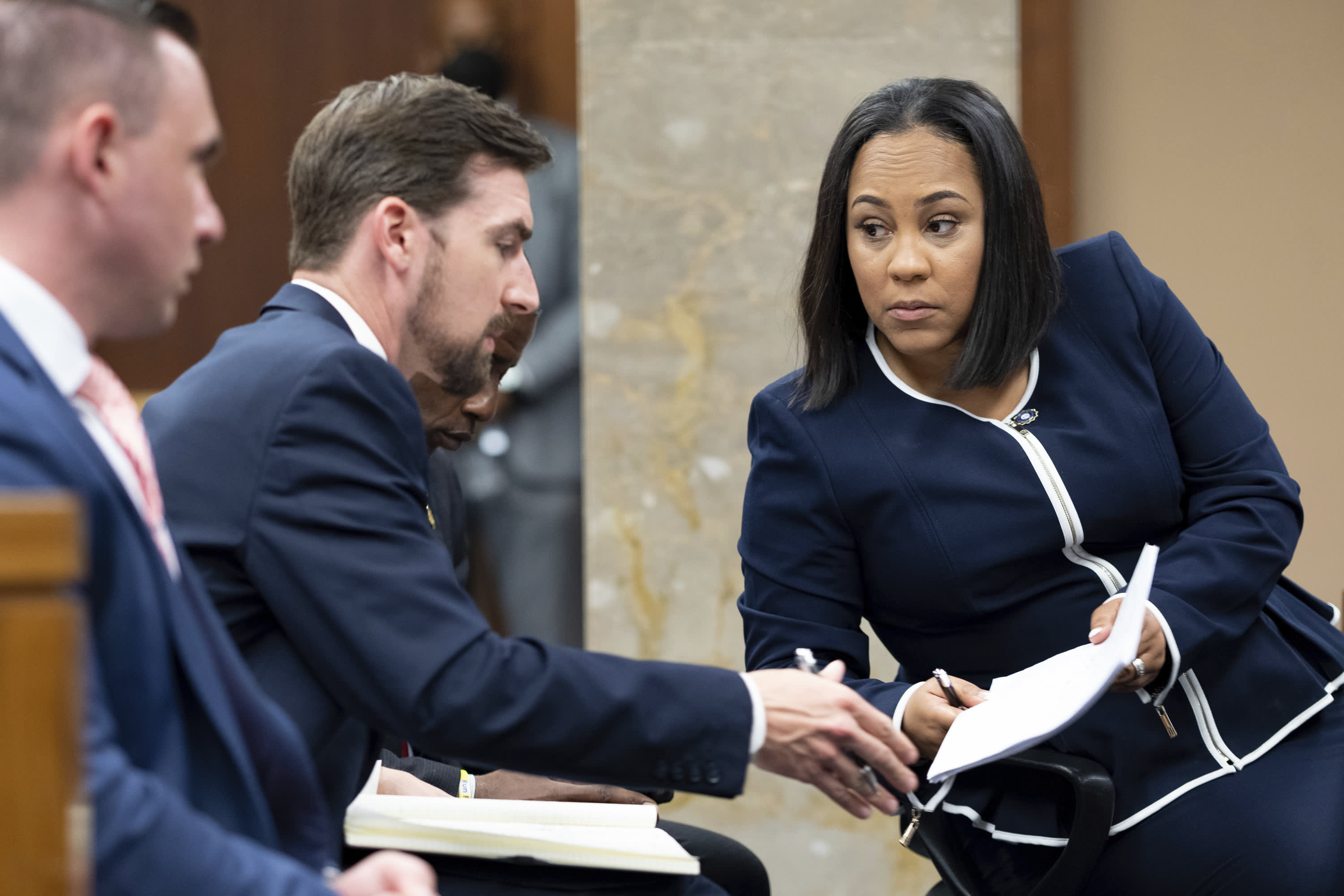
Donald Trump and officials in Atlanta are bracing for a new indictment that could come as soon as next week in a Georgia prosecutor's investigation into the former president's efforts to overturn his 2020 election loss in the state.
Fulton County Sheriff Pat Labat has said he's in meetings “every day” to prepare for a possible indictment. In anticipation of potential charges, his deputies erected barriers last week along the block in front of the main courthouse. The street was closed this week, and parking is prohibited on nearby streets. Those measures are to remain in place through the end of next week, Labat's office said.
Trump has said he expects to be indicted a fourth time by next week and has begun stepping up his criticism of Fulton County District Attorney Fani Willis, who has spent two years leading the election probe into Trump and his allies. Speaking to supporters in New Hampshire on Tuesday, the Republican former president launched highly personal attacks on Willis and called the 52-year-old Democratic prosecutor, who is Black, “a young woman, a young racist in Atlanta.”
“She’s got a lot of problems. But she wants to indict me to try to run for some other office,” Trump said.
Get top local stories in DFW delivered to you every morning. >Sign up for NBC DFW's News Headlines newsletter.
A spokesperson for Willis declined to comment on Trump's criticism. Her office hasn't said whether charges against Trump will come next week.

The Trump campaign released an ad attacking prosecutors who have investigated or pursued charges against Trump. In an email Wednesday morning, Willis told her staff that a television ad set to air this week includes “derogatory and false information” about her and instructed them not to respond publicly.
“You may not comment in any way on the ad or any of the negativity that may be expressed against me, your colleagues, this office in coming days, weeks or months,” the email says. “We have no personal feelings against those we investigate or prosecute and we should not express any. This is business, it will never be personal.”
Willis told law enforcement and local government leaders in a letter in April that she expected to announce charging decisions by the end of the current court term, which ends Sept. 1. She advised law enforcement to prepare for “heightened security,” noting that the announcement of charges “may provoke a significant public reaction.”
A few weeks later, she seemed to narrow that window further in a letter to the chief judge of the county superior court. She indicated that she planned to have much of her staff work remotely for most days during the first three weeks of August and asked that judges not schedule trials and in-person hearings during part of that time, notably on the days when grand juries meet.
Two grand juries were seated last month to serve through the end of the court term, one meeting Mondays and Tuesdays and the other meeting Thursdays and Fridays. Both of those grand juries have been regularly churning out lots of indictments in criminal cases unrelated to Trump, meaning it's unlikely they've had time to hear evidence in the election investigation.
The visible security measures have prompted some speculation that an indictment could come this week. But there's another solid hint that that's not likely. At least one former lawmaker who's been subpoenaed to testify before the grand jury hasn't been told to show up yet. Former state Sen. Jen Jordan received a subpoena that said she'd be given 48 hours notice before she's supposed to appear and, as of Wednesday afternoon, she hadn't gotten that notice.
With the window Willis indicated to the chief judge closing Aug. 18 and the sheriff's traffic restrictions set to end at the same time, it seems a good bet that an indictment will come next week.
If an indictment charges Trump, it would be the fourth to do so this year and the second to focus on the former president's efforts to overturn his presidential election loss to Democrat Joe Biden.
The U.S. Department of Justice earlier this month obtained a four-count indictment in Washington that focuses on Trump's efforts in the months between the November 2020 presidential election and the deadly riot at the U.S. Capitol on Jan. 6, 2021, to subvert the vote and remain in power.
That was the second indictment sought against Trump by Justice Department special counsel Jack Smith. A federal grand jury in Florida in June returned an indictment alleging the mishandling of classified documents.
And a New York grand jury indicted Trump in March, charging him with 34 counts of falsifying business records to cover up hush money payments to a porn actor during the 2016 presidential election.
Trump has pleaded not guilty in all three cases and has relentlessly rained criticism on the prosecutors in speeches and online, accusing them of launching politically motivated attacks against the clear front-runner for the Republican nomination for president in 2024.
The Georgia investigation was prompted by a Jan. 2, 2021, phone call Trump made to Georgia Secretary of State Brad Raffensperger, a fellow Republican. Trump suggested the state’s top elections official could help “find 11,780 votes" needed to put him ahead of Biden in the state.
Trump has insisted he did nothing wrong and has repeatedly said the call was “perfect.”



